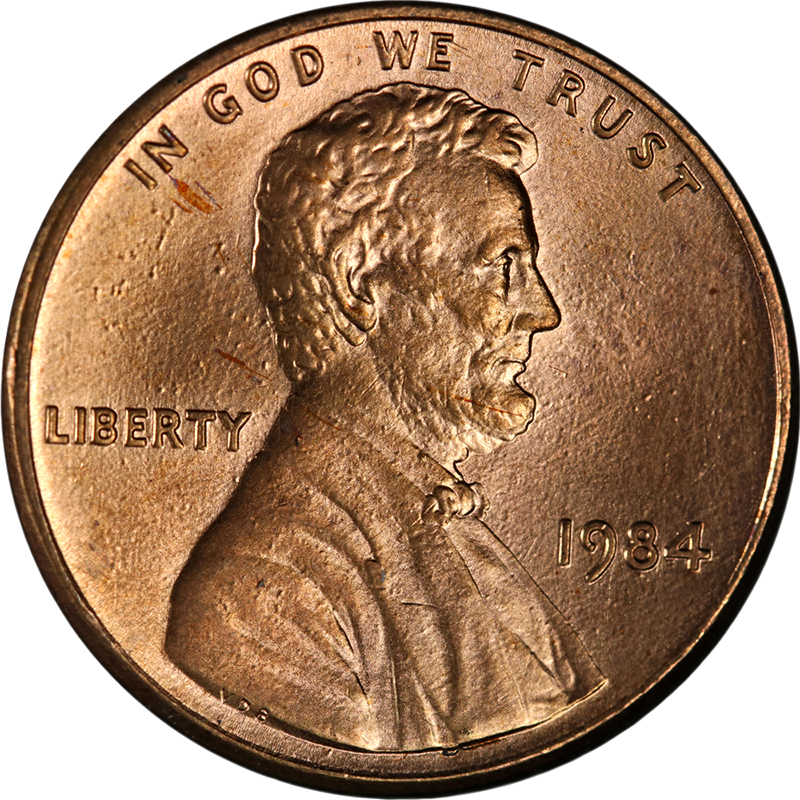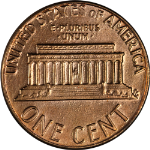Your shopping cart is currently empty. Please choose from one of our categories to start shopping!
1984-P Lincoln Cent Doubled Ear Variety Choice BU+ Great Eye Appeal
SKU: SC33522
1 in stock
| Check by mail | Credit Card/PayPal |
|---|---|
| $188.00 | $193.00 |
This 1984-P Lincoln Cent has great eye appeal with fantastic luster and strong strike. Bright and fresh. Grade: Choice BU+
Lincoln Cent
1909–Present
The Lincoln Cent is the longest running coin series in the United States, making it one of the most important coins in history. This penny achieved an unprecedented amount of success, and broke barriers unlike any coin before it.
The Lincoln Cent was introduced in 1909 to commemorate the one-hundredth anniversary of Abraham Lincoln’s birth. The coin replaced the previous long-running series, the Indian Cent. Before the Lincoln Cent, no circulating U.S. coin had ever honored an actual person, living or dead. From the moment the coin’s development was announced, Americans were eager to get their own Lincoln Cent. When it was finally released in August 1909, demand was greater than the supply, meaning that banks and sub-treasury offices had to limit the number of pennies each person could get. Still, lines were out the door and there were no more pennies to distribute until the next batch of coins were minted.
While the coin was extremely popular at the time and still today, the Lincoln Cent was also subject to controversy in its early days. Soon after the debut of the Lincoln Cent, the public started to take notice of the initials “V.D.B” on the bottom of the reverse. American media criticized designer Victor David Brenner for including his initials on the design, viewing it as an egotistical action on his part. Production of new Lincoln Cents halted until the initials were removed, resulting in a second version of the coin being minted in late 1909.
Even though the Lincoln Cent has been minted for 111 years and counting, that does not mean a penny from 1909 is the same as a penny today. Throughout its history, the coin has gone through numerous design and composition changes. As stated above, the first major change occurred in 1909, with the removal of the “V.D.B” initials. A second major change occurred in 1943 during World War II, when copper needed to be conserved for the war and pennies were made with zinc coated steel. The pennies were only minted for one year because the composition was so unpopular. From 1982 to present day, pennies are made mostly with zinc, though the outer layer is coated with copper.
The numerous design changes to the Lincoln Cent have been on the reverse, while the obverse has consistently stayed the same. The obverse of the Lincoln Cent has always featured the bust of Abraham Lincoln facing right. Curving along the top rim of the coin is the inscription “IN GOD WE TRUST.” Next to Lincoln’s head on the left, “LIBERTY” is inscribed. The date is located in the lower right field.
The original reverse of the Lincoln Cent, also known as the “Wheatie” reverse, featured the inscription “ONE CENT” boldly in the center with two ears of wheat on either side. In addition, “UNITED STATES OF AMERICA” was inscribed below the denomination, and “E PLURIBUS UNUM” above it. In 1959, to commemorate the 150th anniversary of Lincoln’s birth, the reverse was redesigned to feature the Lincoln Memorial. “ONE CENT” is inscribed along the bottom rim of the coin and “UNITED STATES OF AMERICA” is on the top rim. The phrase, “E PLURIBUS UNUM,” can be found above the memorial. The final redesign occured in 2010, which features the Union Shield.
The Lincoln Cent was minted in four different locations — Philadelphia, Denver, San Francisco, and West Point. Most Philadelphia Lincoln Cents have no mint mark, although in 2017, a special edition was released with a “P” mint mark representing the Philadelphia Mint. For the other three locations, “D” represents the Denver Mint, “S” represents the San Francisco Mint, and “W” represents the West Point Mint. Some key dates and varieties for the Lincoln Cent include 1909-S V.D.B., 1909-S, 1914-D, 1931-S, 1943 Copper, and 1955/55 Doubled Die.
Specifications
Weight: 3.11 grams (1909–1982); 2.5 grams (1982–Present)
Composition: 95% Copper, 5% Tin/Zinc (1909–1942, 1947–1962); 99% Steel, 1% Zinc (1943); 95% copper, 5% zinc (1944–1946, 1962–1982); 97.5% zinc, 2.5% copper (1982–Present)
Diameter: 19.05 mm
Edge: Plain
Mints: Philadelphia, Denver, San Francisco, West Point


